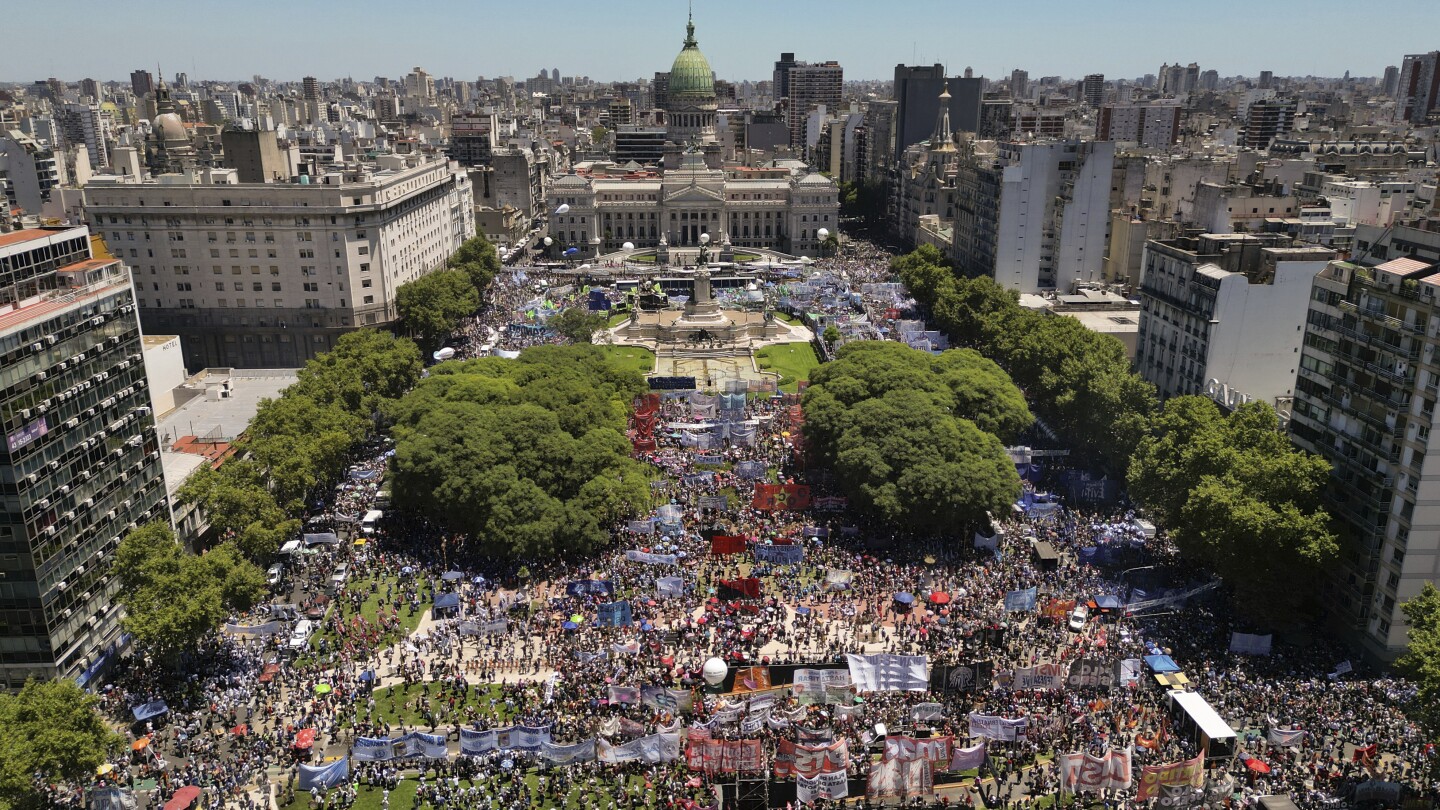BUENOS AIRES, Argentina (AP) — Just over a month after taking office in Argentina, right-wing President Javier Milei on Wednesday faced a general strike in rejection of his decree targeting unions as well as his economic and labor reform proposals.
Argentina’s largest labor union, known by its acronym CGT, organized the strike and was joined by other unions. They were taking to the streets in the capital, Buenos Aires, and other cities across the country, also joined by social organizations and political opponents, including members of the Peronist party that has dominated national politics for decades.
Until his presidential run, Milei was known mostly for his televised screeds against the political caste, and he secured victory last year with a wide margin. A self-described libertarian, he pledged a drastic reduction in state spending aimed at shoring up a wide fiscal deficit that he says is fueling red-hot inflation, which finished 2023 at 211%.
On Dec. 20, Milei issued a decree that would revoke or modify more than 300 existing laws to limit the power of unions and deregulate an economy featuring notoriously heavy state intervention. He also sent a so-called omnibus bill to Congress to enact sweeping reforms in the political, social, fiscal, legal, administrative and security fields.
Wednesday marked Argentina’s first general strike in more than four years, and was also the quickest ever to be organized in a president’s term since the return of democracy in 1983, according to a review by local media outlet Infobae. Milei’s predecessor, center-left Alberto Fernández, did not face any general strikes.
Milei won the runoff vote with 56%, and in his inaugural address told Argentina that things would get worse before improving. Two separate polls this month show he retains support of more than half of respondents, despite accelerating inflation and mass layoffs announced at state-owned firms.
Security Minister Patricia Bullrich on Wednesday accused organizers of being “mafiosos” bent on preventing the change Argentines chose in the November vote, saying on X, former Twitter, that the strike would not halt the administration’s progress. His spokesperson, Manuel Adorni, said Wednesday at a press conference: “one cannot dialogue with people who try to stop the country and show a rather antidemocratic side.”
Milei’s administration also warned in recent days that, as with a demonstration held in December, protesters will be prevented from engaging in the traditional practice of blocking roads and will be subject to arrest.
Evidence of the strike in neighborhoods around Buenos Aires remained slight toward midday, when the stoppage had been set to begin. Banks, gas stations, public administration, public health officials and trash collection were operating on a limited basis.
Public transportation workers were set to go on strike at 7 p.m. local time (22:00 GMT) in Buenos Aires and surrounding areas, but planned to operate normally during the daytime hours to facilitate protesters access to and from the plaza in front of Congress.
Airports were staying open, although the state-owned airline Aerolineas Argentinas canceled 267 flights and rescheduled others, disrupting travel plans of more than 17,000 passengers.
Milei’s decree restricted the right to strike by essential workers in hospital services, education and transport, and created new mechanisms of compensation to make it easier to fire employees. It also enabled workers to pay private healthcare providers directly, rather than channeling those resources through unions, and so dries up a significant source of their revenue.
Milei has said his proposed omnibus bill will create the basis for economic stability and growth, reining in inflation and reducing poverty, which is punishing four in 10 Argentines. The bill’s content is being negotiated in the Lower House, with a vote expected as soon as this week.
AP writer David Biller contributed from Rio de Janeiro.

